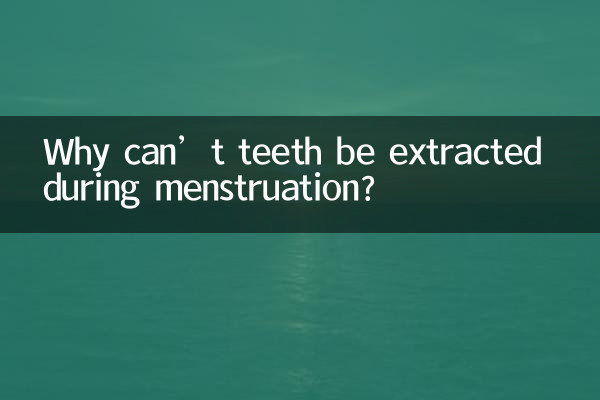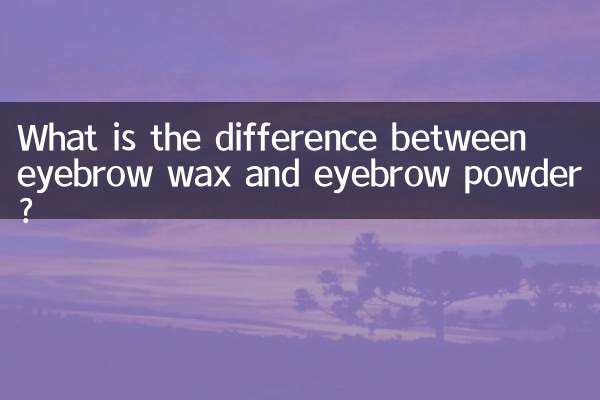Why can’t teeth be extracted during menstruation?
The menstrual period is a special stage in a woman’s menstrual cycle, when the body is in a more sensitive state. Many women may not be aware that having a tooth extraction during menstruation may come with additional risks and discomfort. This article will explain in detail why teeth should not be extracted during menstruation and provide relevant data support.
1. Risks of tooth extraction during menstruation

During menstruation, a woman's body undergoes a series of physiological changes that may affect the recovery and safety of tooth extraction surgery. The following are the main risks of tooth extraction during menstruation:
| risk factors | Specific performance |
|---|---|
| Decreased coagulation function | During menstruation, the level of estrogen in a woman's body decreases, resulting in a decrease in the number of platelets and weakened coagulation function, which can easily lead to non-stop bleeding. |
| Reduced immunity | As immunity declines during menstruation, wounds are more susceptible to infection, increasing the risk of postoperative complications. |
| increased pain sensitivity | Women are more sensitive to pain during menstruation and may experience more intense pain after a tooth extraction. |
| mood swings | Hormonal changes may lead to emotional instability and affect postoperative recovery and mental state. |
2. Medical advice and data support
According to medical research, the complication rate of tooth extraction during menstrual period is significantly higher than that at other periods. Here are the relevant data:
| research indicators | Tooth extraction during menstruation | Tooth extraction during non-menstrual period |
|---|---|---|
| postoperative bleeding rate | 15%-20% | 5%-8% |
| infection rate | 10%-12% | 3%-5% |
| pain duration | 3-5 days | 1-3 days |
3. How to choose the appropriate time for tooth extraction
In order to avoid the risks of tooth extraction during menstruation, women should try to choose a suitable time for tooth extraction surgery. Here are some suggestions:
1.avoid menstrual period: It is best to perform tooth extraction within 3-7 days after the end of menstruation, when the physical condition is relatively stable.
2.Consult a doctor: If a tooth must be extracted, you should communicate with your dentist in advance to evaluate whether your condition is suitable for surgery.
3.Postoperative care: Even if the tooth extraction is not during the menstrual period, you need to rest, avoid strenuous exercise, and take medication as directed by your doctor after the operation.
4. Common misunderstandings and answers
1.Myth: Tooth extraction during menstruation is just a trivial matter
In fact, menstrual tooth extraction may lead to serious postoperative complications, such as heavy bleeding or infection, and should not be taken lightly.
2.Myth: All women cannot have teeth extracted during menstruation
Although most women should avoid tooth extractions during menstruation, individual differences exist. A small number of women with normal coagulation function and good health may be at lower risk, but still need to be cautious.
5. Summary
Menstrual tooth extractions may carry additional health risks, including bleeding, infection, and increased pain. Women should try to avoid tooth extraction surgery during menstruation and communicate with their doctor in advance. Through reasonable timing and post-operative care, the risks of tooth extraction can be minimized and ensure smooth surgery and quick recovery.

check the details

check the details